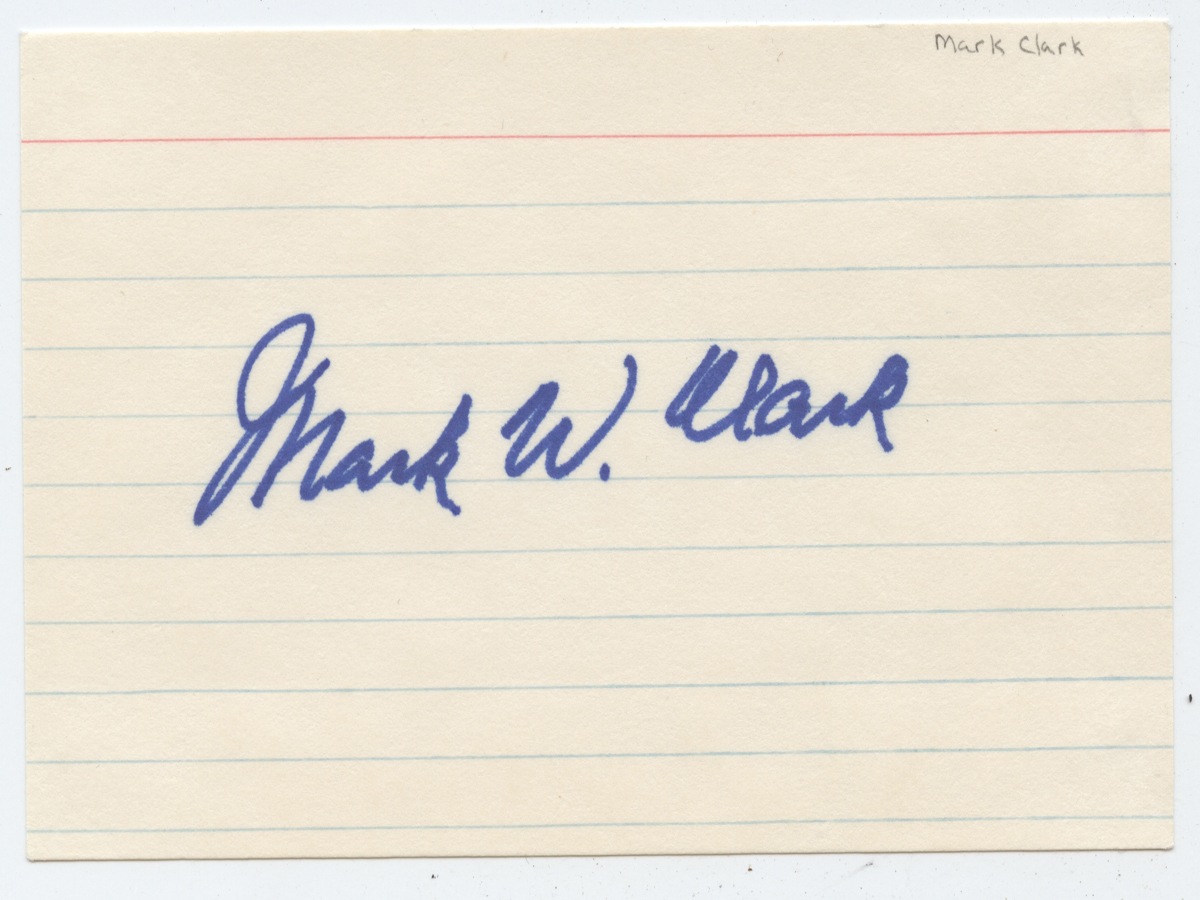

Clark, Mark W. (1896 - 1984) was a United States Army officer who saw service during World War I, World War II, and the Korean War. He was the youngest four-star general in the United States Army during World War II.
During World War I, he was a company commander and served in France in 1918, as a 22-year-old captain, where he was seriously wounded by shrapnel. After the war, the future U.S. Army Chief of Staff, General George Marshall, noticed Clark's abilities. During World War II, he commanded the United States Fifth Army, and later the 15th Army Group, in the Italian campaign. He is known for leading the Fifth Army in its capture of Rome in June 1944.
Clark has been heavily criticized for ignoring the orders of his superior officer, British General Sir Harold R. L. G. Alexander, and allowing the German 10th Army to slip away, in his drive to take Rome, the capital of Italy, a strategically unimportant city. The German 10th Army then joined with the rest of the German army group at the Trasimene Line.
In March 1945, Clark, at the age of 48, became the youngest American officer ever to be promoted to the rank of four star general.
General of the Army Dwight D. Eisenhower, a close friend of Clark's, considered him a brilliant staff officer and trainer of men. Clark was awarded many medals, including the Distinguished Service Cross, the U.S. Army's second highest award. A legacy of the "Clark task force" that he led in 1953–1955, which reviewed and made recommendations on all federal intelligence activities, is the term Intelligence Community. 3" x 5" lined card. $20.00